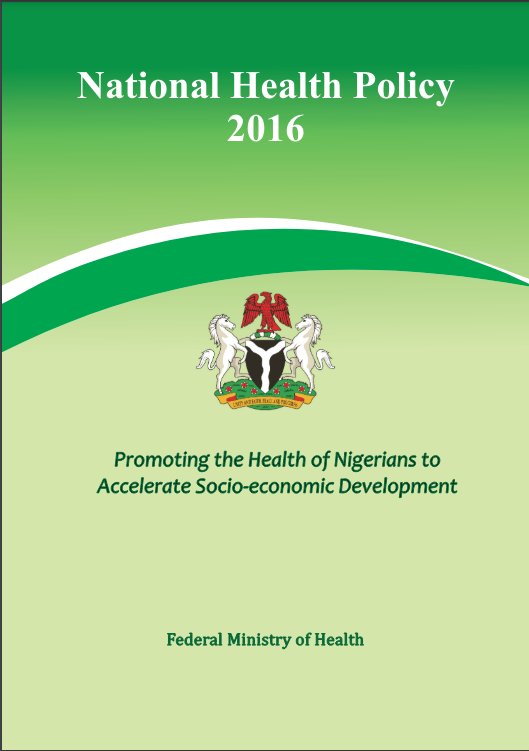Prior to the development of this National Health Policy document, Nigeria had developed and implemented two National Health Policies in 1988 and 2004 respectively. Both were developed at critical stages in the evolution of the Nigeria Health System and had far-reaching impact on improving the performance of the System. In between these efforts, there were several attempts to develop a holistic approach to addressing the challenges of the health sector, including the convening of the National Health Summit (in 1995) which attempted to do a diagnostics of the Health Sector. The 2016 National Health Policy, however, is coming at a most opportune time, shortly after the enactment of the first National Health Act 2014 for the country and at a time when there is global re-commitment to a new development framework, the Sustainable Development Goals (SDGs), and an increasing global support for the attainment of Universal Health Coverage (UHC).
Over the last two and a half decades, Nigeria has recorded some progress in the performance of its health system. Progress includes improvements in key indices for ‘major’ communicable diseases (HIV/AIDS, TB and Malaria), as well as in maternal and child health. Recently, Nigeria has been able to halt the transmission of the wild poliovirus, eradicate the guinea-worm disease, and successfully controlled the spread of the deadly Ebola virus disease. The key lesson from these successes is the need for the country to build a resilient health system that assures access to basic health care services in a sustainable manner.
The Presidential Summit on Universal Health Coverage, convened in March 2014, reiterated the country’s commitment to achieving UHC and sustainable health development, through the strengthening of Primary Health Care and providing access to suitable financial risk protection mechanisms. This commitment is in addition to other development challenges, including the emergence of a sustainable development goals, target, health risks posed by health emergencies, emerging and re-emerging epidemic diseases, changes in the epidemiological transition of Nigerians, as well as developments in the political economy affecting health including the projected downward trend in donor aid and available fiscal space for health. The imperative of a legislative framework for health necessitated the development of a new National Health Policy, with a view to providing the appropriate framework that would enhance the relevance of the document to our national health efforts and make the goals of our health care system more achievable.
This new Policy, therefore, provides the direction necessary to support the achievement of significant progress in improving the performance of the Nigerian health system. It also lays emphasis on strengthening primary health care as the bedrock of our national health system, in addition to the provision of financial risk protection to all Nigerians, particularly the poor and most vulnerable groups. These important approaches
are at the heart of the change agenda of this Administration. The Policy also gives the reader useful information, in the form of concise statements, on important ancillary health –related programmes.

